We are degrading the environment by the day. Yes, you read that right! Aware individuals are now taking baby steps to do their bit to restore the environment, and if not restore, making sure they don’t contribute in depleting it further.
On this World Environment Day, we bring you a compilation of 10 environmental friendly innovations/experiments initiated in India, which are helping curb environmental damage in their own way. Some of these are already a rage, and some are on their way to be implemented, or are a probable solution to retreat from an environmental disaster that awaits us.
1. A 12-year-old’s innovation to clean our oceans
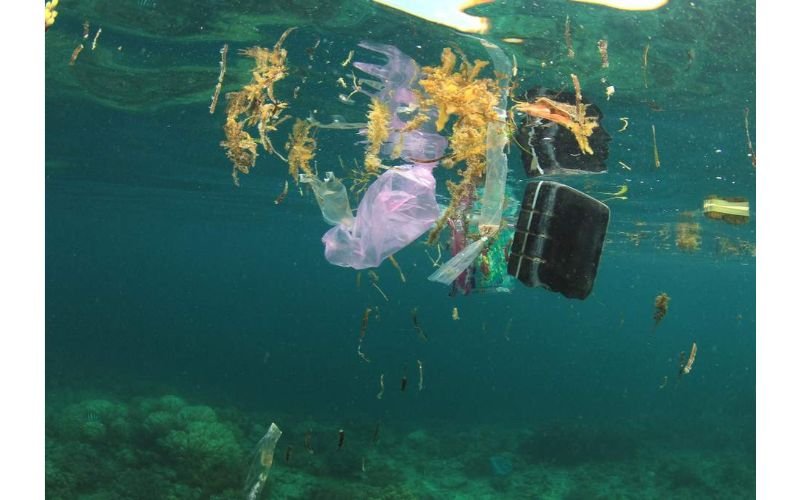
We’d like to begin with the youngest innovator on our list, a Pune based kid, Haaziq Kazi who worked on a prototype of an ‘ocean cleaning ship’ that could suck in plastic waste from the waters, analyse and segregate it according to size. His idea of a submarine vessel gave way to ERVIS, which is a futuristic-ship with saucers attached, that can clean waste floating on the ocean surface, analyze the waste collected, and also stop waste at source, preventing it from getting disposed by ships. Going a step ahead with his innovation, Haaziq is also working on the logistical management of waste that his vessel would collect from the oceans. Read all about his innovation here.
2. Naturally dying khadi clothes using waste flowers
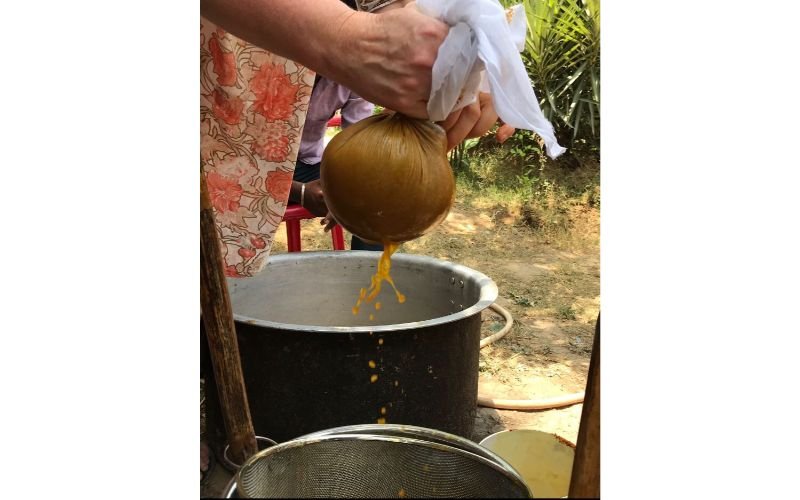
Flowers used on an everyday basis in religious places are a menace when it comes to disposal. More importantly, synthetic dyes when washed into water systems kill aquatic life. Praveen Chauhan, a social entrepreneur from Bihar came up with a way to use flower offered in religious places to make natural dyes for khadi clothes. His social enterprise MATR is on a mission to revive Khadi culture and help local artists get more respect and exposure. MATR has now collaborated with an Australia-based sustainable clothing line, ‘Because of Nature’ and taken the work of local weaver communities and the khadi culture to international platforms in London, New York, Paris and Milan.
3. Edible cutlery
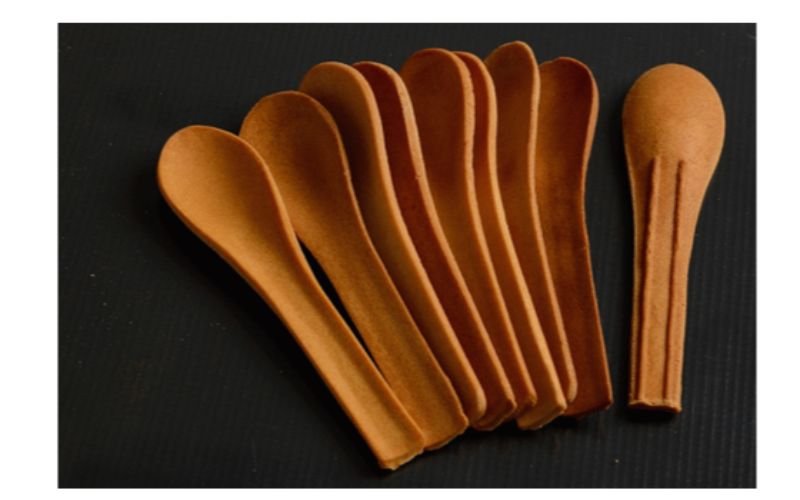
Plastic cutlery as a menace to the environment; to fight this damaging practice a Haryana resident thought of edible cutlery, and came up with edible spoons, made of millet, rice and wheat. If you skip on eating these, they will decompose within a week. In case you are wondering, it is sturdy enough to be used to consume hot substances, is free of preservatives and has a shelf life of three years. The spoons are made by drying and hardening—baking them at a high temperature in in-line ovens, which significantly removes the water content within the raw materials. The removal of moisture is key to their long shelf life, moreover, it’s available in different flavours. You can buy them here.
4. Eco-friendly straws
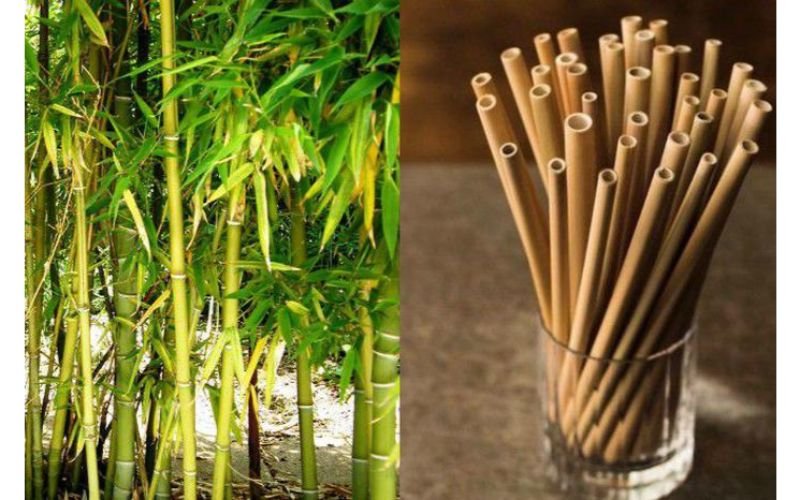
Plastic straws are bad. Bad for us, bad for the environment. These eco-friendly straws made of bamboo an stainless steel are an excellent alternative to plastic straws. Reusable, eco-friendly, food grade, lead-free, and flavour free, several aware individuals, hotel chains, and restaurants are now switching to eco-friendly straws.
Indian Designer-turned-environmentalist Rhea Chhabria, along with her partner Suraj Nair are making these straws that supply to hotels and restaurants. You can buy these straws over Whatsapp on +919769320031.
5. Eco-friendly menstrual products
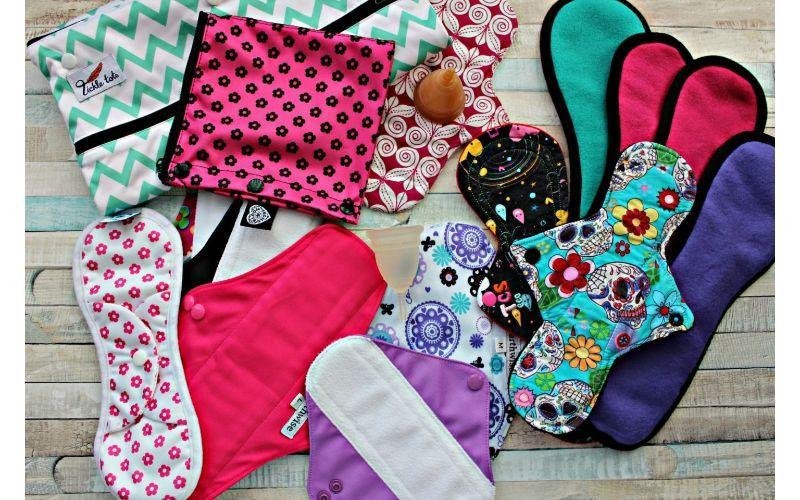
Women’s menstrual hygiene products can cause so much plastic waste one can only imagine. Once we gushed on how we have ready to use pads, now it’s time we make greener choices, to help add our bit to the environment’s renewal. One way is using menstrual cups, and if cups don’t work for you, you can switch to natural and reusable pads. Homegrown brands like ‘Jaioni’s cloth pads’ are free of chemicals like bleach, gel, and other additives. Another Indian brand ‘Eco Femme’ makes reusable cotton pads and Saathi which makes biodegradable pads using compostable material like banana fibre.
6. Passive Solar Water Wall

Air conditioners not only suck up electricity, but also contribute to around 1.5 tonnes of carbon each year. Two students from IIT Kharagpur, Sahashranshu Maurya and Somrup Chakraborty, came up with an alternative that could act as a potential replacement for energy-guzzling air conditioners.
Their innovation is that of Passive Solar Water Wall, where the cooling system revolves around a rectangular water tank fitted into a wall — its very high surface area allows maximum interaction between the air and the tank walls, thus helping it cool rapidly. The heat absorbed is continuously removed from the system by daily household use of water.
These walls enable no CFC and carbon emission, minimal electricity usage and as much as 50 percent reduction in cooling cost!
7. A machine that vends water in exchange of plastic
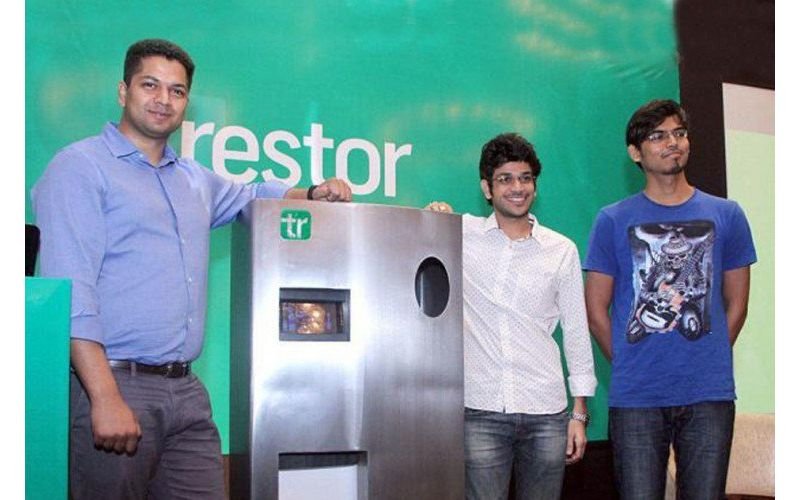
Swacch Machine, a water-for-plastic machine is an innovation thought of by two IIT-Bombay alumina, Anurag Meena and Satyendra Meena, who collaborated with Trestor (a Chandigarh-based start-up) to bring their idea to being. The machine uses plastic waste to get clean drinking water! With the increasing garbage problem in our cities, this really is a great idea to streamline plastic disposal.
For every recyclable waste item one puts inside the machine, you receive a digital value token that can be exchanged for 300 ml of clean drinking water. The machine designed and developed in just 95 days, provides chilled clean drinking water as well as on room temperature. The machine reduces the waste to one-sixth of its size, and sends an automated SMS when it reaches 80% of its capacity.
8. Solar-Powered Cold Storage
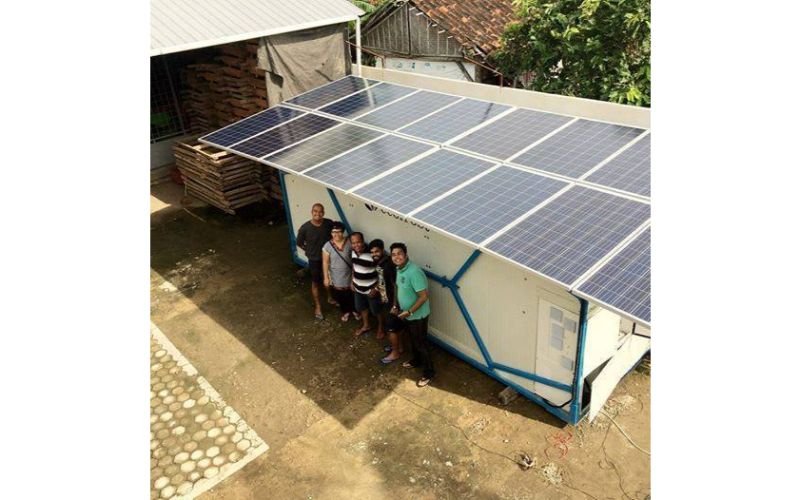
The plight of Indian farmers is nothing new. Each year, Indian farmers lose over thirty percent of their harvest due to lack of proper infrastructure and storage facilities. To tackle the problem faced by our food providers, Devendra Gupta, Prateek Singhal, and Vivek Pandey (alumni of IIT Kharagpur), came up with a product ‘Ecofrost’ that farmers can use to increase the shelf life of their products.
Ecofrost, is a solar-powered cold-storage unit, which can be used to preserve produce like spinach, tomatoes, or capsicum, that has a tendency to spoil quickly. Ecofrost enables a storage for up to 21 days! Not only this, farmers can even control the temperature from their phone by selecting the product that they want to store. The storage unit then automatically regulates the optimum temperature. On days that are not sunny, the unit which is equipped with chemical batteries helps maintain temperatures up to 30 hours.
9. Zero-Energy House

A group of 70 students from IIT Bombay have build a prototype for a fully functional house that requires net zero electricity and in turn, stores energy for future use. They’ve infact materialized this innovation in the form of a 2,000 sq ft solar powered villa under their Project Solarise. The villa has three well furnished rooms, with a kitchen that is amply lit and air-conditioned. The energy supply is generated on the villa’s rooftop through solar panels, with an added ability to route excess energy generated on sunny days to a power grid. This stored energy is utilized later in the day. This genius innovations also lets appliances like oven, cooker, etc in the villa, function by solar energy.
10. Roads using plastic waste

We cannot stop stressing enough as to how plastic waste is everywhere and is one of the primary causes for pollution. A government order in the year 2015 made it mandatory for road developers in India to use plastic, along with bituminous mixes, for road construction. The technology for the same was developed by Rajagopalan Vasudevan, a Professor of Chemistry at Thiagarajar College of Engineering, Madurai. The technology he developed is easy and no additional machinery is required. Infact plastic increases aggregate impact value and improves the quality of pavements. Wear in tear of roads over time which is another concern, is also reduced to a great extent. No toxic gases are released during the construction process using this technology.


